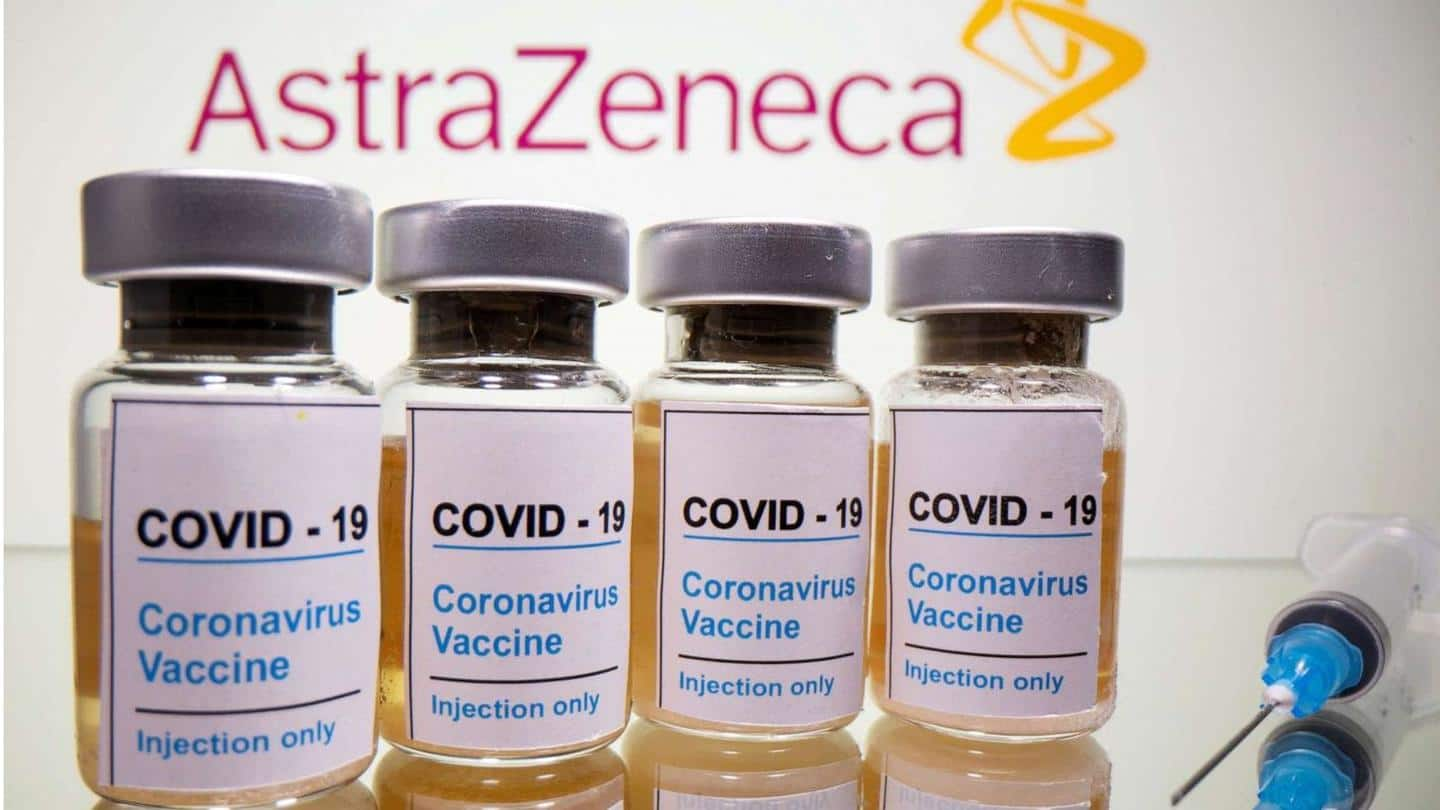
Oxford/AstraZeneca first jab cuts COVID-19 transmission substantially: UK study
What's the story
According to a new Oxford University study, the first dose of the two-dose Oxford/AstraZeneca vaccine can cut coronavirus transmissions by around 67 percent and therefore, have a substantial effect on controlling the spread.
The UK Government described this as good news for the world because the impact of COVID-19 vaccines on transmission has been a crucial unknown in the fight against the pandemic.
Research and results
Three-month gap between two doses is effective
The Oxford vaccine trial results, currently under review to be published by The Lancet, also found that the three-month interval between the two required doses proved effective.
A single standard dose of the Oxford vaccine showed 76 percent efficacy from day 22 to day 90 after the jab, which means protection is not reduced in the three months between the first and second dose.
Quote
The Oxford vaccine is absolutely superb and works well: Hancock
"This vaccine has shown a two-thirds reduction in transmission, stronger protection from the 12-week gap between doses, and no hospitalizations. It also reduces the number of people who have COVID-19 at all, even asymptomatically," said UK Health Secretary Matt Hancock.
Further details
New data verifies interim data used to grant EUA
The new data provides important verification of the interim data that was used by more than 25 regulators, including the MHRA and EMA, to grant emergency use authorization.
"It also supports the policy recommendation made by the Joint Committee on Vaccination and Immunisation for a 12-week prime-boost interval, and find optimal approach to roll out," said Professor Andrew Pollard, Chief Investigator, Oxford vaccine trial.
COVID-19 response
Interval of 12 weeks between doses raises efficacy to 82.4%
The analysis found no cases of hospitalizations and that the effect of dosing interval on efficacy is pronounced, with vaccine efficacy rising from 54.9 percent with an interval of fewer than six weeks to 82.4 percent when spaced 12 or more weeks apart.
This supports the UK government's strategy of the mass roll-out of the first doses, with a second dose after three months.
Information
9.6 million people in UK have been given first dose
The findings are in line with previous research into vaccines of influenza, ebola, and malaria. The scientists are hoping to report data regarding vaccine's impact on new COVID-19 variants. The news comes when the National Health Service has covered 9.6 million people with first jabs.
Different studies
Antibodies against COVID-19 last up to six months: Related study
A related study revealed that protective antibodies against COVID-19 last up to six months in most infected people. 88 percent of people showed these results, based on the UK Biobank data of almost 1,700 people.
"We aren't certain how the presence of antibodies relates to immunity, but there's no subsequent infection for at least six months," said UK Biobank Chief Scientist Professor Naomi Allen.
COVID-19 symptoms
UK Biobank study gives more details about the symptoms
The UK Biobank study, one of the world's largest follow-up COVID-19 studies, also provides more detail about the symptoms experienced by the infected.
While 26 percent had a cough and 28 percent fever, 43 percent said they lost the sense of taste or smell. However, 40 percent reported none of these symptoms, and about 20 percent reported no symptoms of any kind at all.
Information
Blacks or South Asians more likely to have antibodies
Additionally, the data found that among a group of nearly 20,000 people who were regularly tested monthly during the pandemic, it was younger adults, black or South Asian people, and those living in deprived areas who were most likely to test positive for the antibodies.